

A-Z Artist Index Compilations Record Labels Media
Help Us! Contact Us Resources Timeline


Bio:
MacMurrough, or Shades of MacMurrough as they were known initially until September 1973,
was a trio formed in Ferns Co.Wexford in 1971 by Paul Kavanagh and sisters
Mary and Josephine O'Neill. They were a ballad group in the Emmet Spiceland
tradition. Between 1972 and 1978 they recorded three albums for Polydor Records
which are now highly prized by folk fans.
Their recording debut was a close harmony pop version of "Julia", written by
John Ledingham AKA Jonathan Kelly. This was released as a single on Dolphin
Records in 1971-72. They made several appearances on RTE television, signed to
Polydor in 1972, won the Kilkenny Beer Festival ballad contest in 1973, and recorded
their first album Carrig River. Released in 1973,
Carrig River is a collection of Irish poems and ballads, many of which had been
recorded several times before by various artists over the preceeding 10-20
years, especially during the ballad boom. What makes Carrig River really stand
out is the calibre of the arrangements and the beauty of the vocal harmonies.
Familiar material is re-cast and brought back to life through subtle
instrumentation including 6- & 12-string guitars, spinet, autoharp, tin whistle
and bodhran, and sublime vocal harmonies. This album is highly recommended.
The title track was released as a single.
The band's third single came out in 1973. Credited to MacMurrough, both sides
are non-LP. "Only Her Rivers Run Free" / "Lord of the Dance" was issued in
a picture sleeve.
The self-titled second is the most adventurous of theie three albums and
is now considered an acid folk classic. Released in 1974, it expands on the debut
with a broader range, better production values (thanks to Donal Lunny) and richer
instrumentation including guitar, dulcimer, lute, spinet, glockenspiel, tin
whistle and bodhran. It includes English and Irish ballads, a 15th century Latin
hymn "Deus Meus", and the definitive version of "A Kiss In The Morning Early", a
song usually associated with Michael Hanly. The vocal harmonies are outstanding
and the arrangements are brilliant throughout. This is probably their best album.
The debut runs a close second and both albums are quite different. The second
is sophisticated where the debut is exhuberant. The second is certainly the more sought
after by acid folk fans worldwide. Polydor apparently only pressed 500 copies.
Another non-LP track emerged on a split single with Golden Dawn, one of
a series released by Gael Linn in 1974. "Cuan Bhaile Na Cuirte" later turned up
on the From Lagan To Lee sampler album on the Wavin Pipes label, housed in a
fabulous sleeve designed by Jim Fitzpatrick.
By the time recording began for a third album in the autumn of 1977, MacMurrough
was now a husband and wife duo. Paul and Mary had married and Josephine had
stopped performing. "Merry & Fine" was released in 1978. It shows that they'd
broadened their range to include Scottish and Breton folk as well as some
contemporary material. It's well played and the vocal harmonies are superb but
it also shows that they had begun to suffer the problem that often afflicted
ballad groups who don't write their own material. Their repertoire of songs was
drying up and their ideas for new arrangements for songs were lacking, and so
they began to copy others. The album lacks the originality in arrangement, the
delicate attention to detail, and the magical feel of the earlier albums.
There were two later, non-LP singles in 1981 and 1984 respectively, neither of
which is remarkable. The second "Cuchulainn's Son" is a tribute to Nickey
Rackard, a famous Wexford hurler.
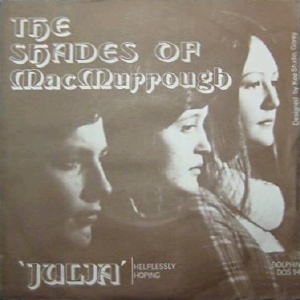
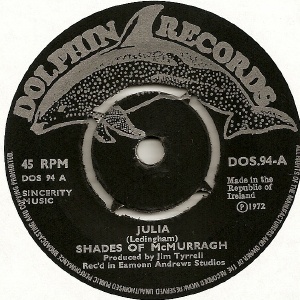
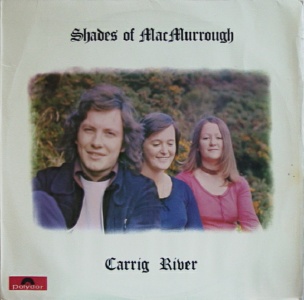
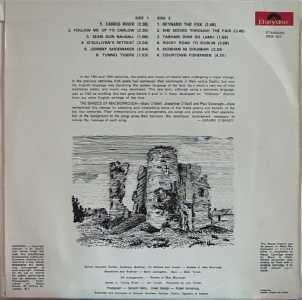
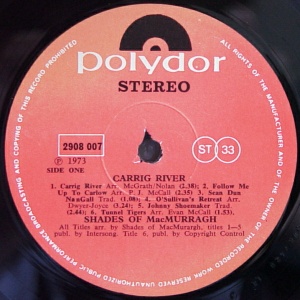
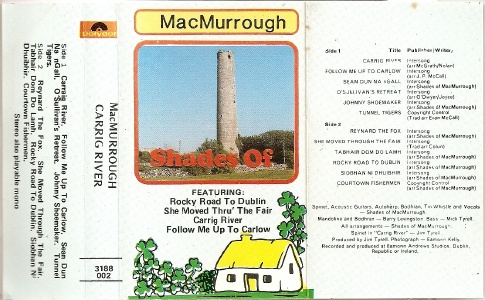
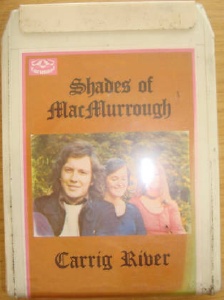
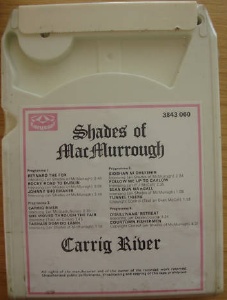
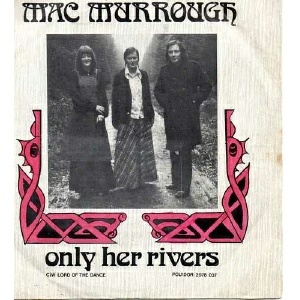
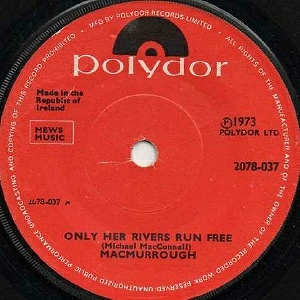
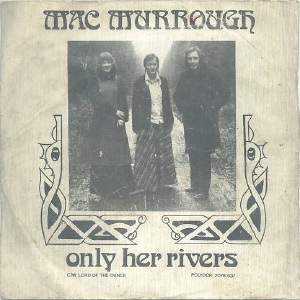
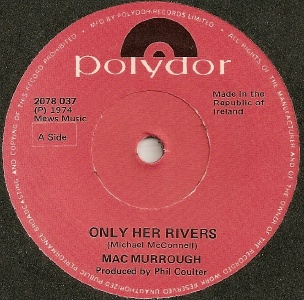
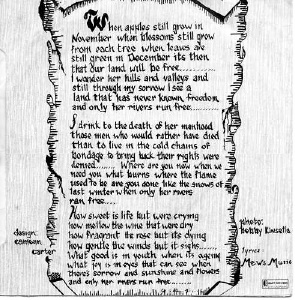
Notes: For those who choose to believe the nonsense that Irish Polydor editions numbered in the low hundreds, it will come as a bit of a shock to learn that this single was issued twice, such was it's popularity! Note the 'colour cover' shown above has in fact been hand-coloured with red marker.
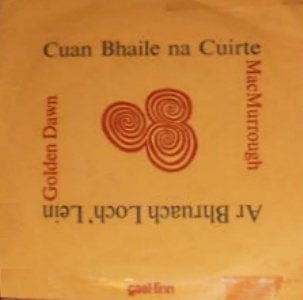
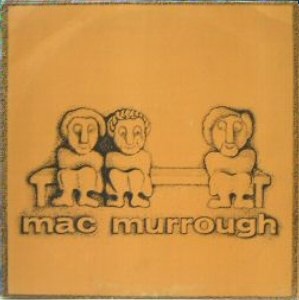
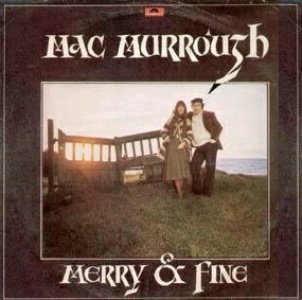
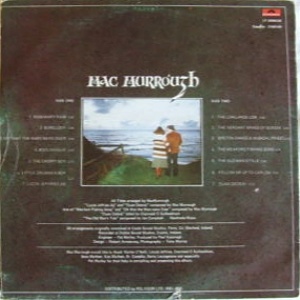
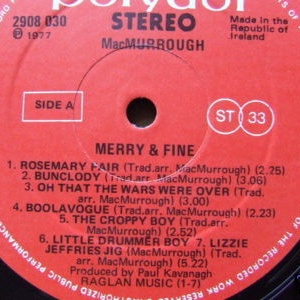
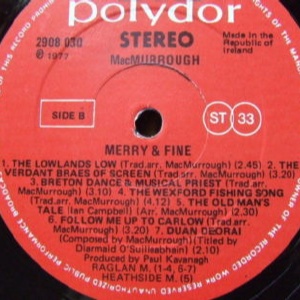
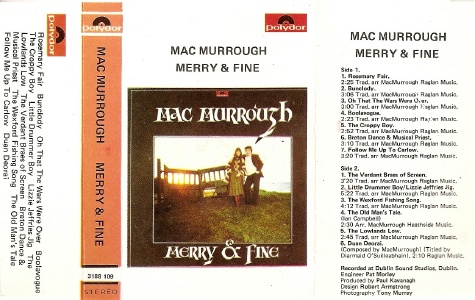
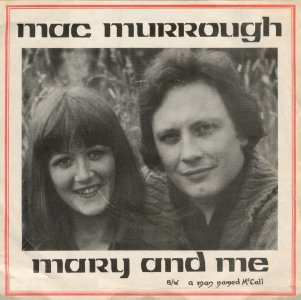
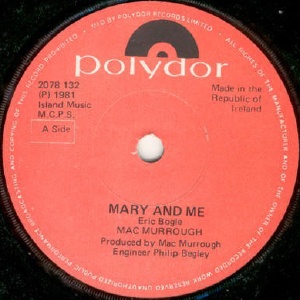
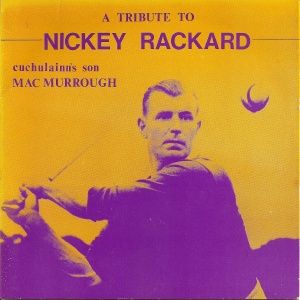
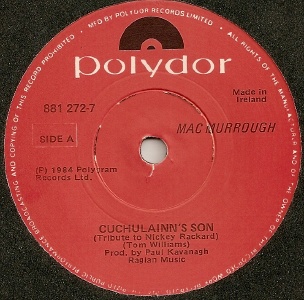
Help!: We need your help to complete this entry. If you can tell us more about this band then please do! We welcome any corrections, missing details, connections to other bands, where are they now, etc. We also need photos, scans, copies of releases or live or demo recordings, and any other memorabilia gathering dust in the attic. If you can help, then please get in touch.
thanks to John Lynch